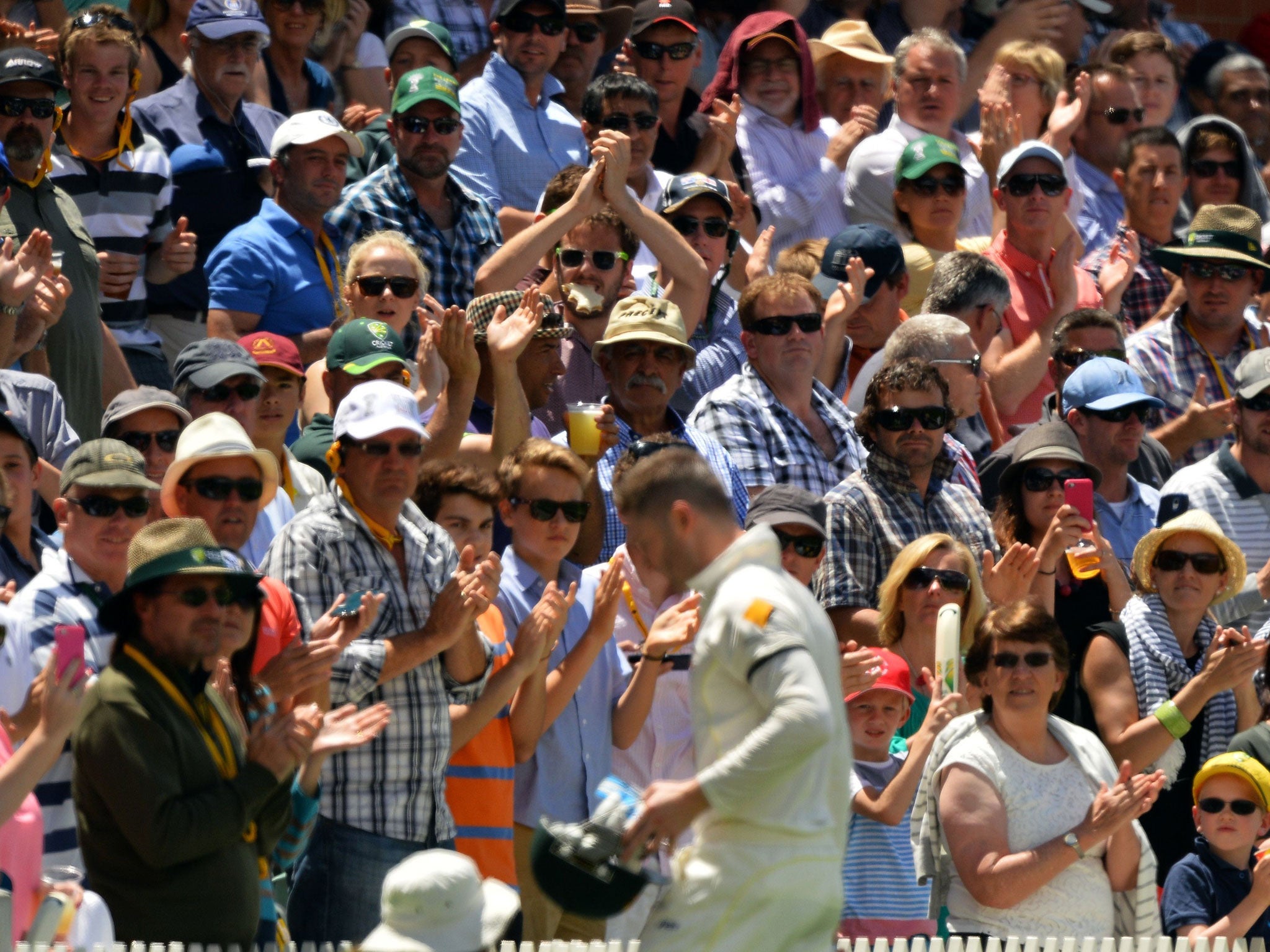John Townsend: Michael Clarke wears the mantle of Don Bradman with singular style in Ashes 2013-14
He is the first Australian cricketer in 70 years to match the influence of the greatest exponent of the national game

Your support helps us to tell the story
From reproductive rights to climate change to Big Tech, The Independent is on the ground when the story is developing. Whether it's investigating the financials of Elon Musk's pro-Trump PAC or producing our latest documentary, 'The A Word', which shines a light on the American women fighting for reproductive rights, we know how important it is to parse out the facts from the messaging.
At such a critical moment in US history, we need reporters on the ground. Your donation allows us to keep sending journalists to speak to both sides of the story.
The Independent is trusted by Americans across the entire political spectrum. And unlike many other quality news outlets, we choose not to lock Americans out of our reporting and analysis with paywalls. We believe quality journalism should be available to everyone, paid for by those who can afford it.
Your support makes all the difference.Michael Clarke is no Don Bradman, though he is the first Australian cricketer in 70 years to match the influence and scale of achievements of the greatest exponent of the national game.
Both prolific runscorers; both highly influential as playing selectors, though Clarke has since lost that role; both cold fish in their own singular ways.
Returning to the city that Bradman called home for 66 years and the ground he dominated for the second half of his career, Clarke evoked the implacable spirit of his predecessor.
As his deputy and great mate Brad Haddin said, Clarke was now unchallenged as the best batsman in the world. The Australia captain’s sparkling 148 passed a swag of milestones to further illuminate his standing in the modern game.
Haddin is no slouch himself in his vibrant autumn coming, adding 118 in Australia’s imposing 570 for 9 and joining Clarke for an even double-century stand that was the best at the ground for the sixth wicket. “Once he gets past 20 he goes on and gets really big hundreds,” Haddin said.
“His form over the past two years has been as good as anyone in the world. He is very good to watch.”
Unless you are an England bowler toiling to find a gap in his defences.
There appeared to be chunks rather than chinks missing from his defensive armour when Clarke was bounced out cheaply in the first Ashes contact at The Gabba a week or two ago but that appears as distant as the concept of Monty Panesar as an Ashes threat.
Clarke is no stranger to winning doubters to his advantage.
He was booed at the Sydney Cricket Ground – his own home patch – three years ago when he made his first appearance as captain, and again last summer, though the latter was more light-hearted and driven by the urge to see Mike Hussey one last time as Australia counted down a small target.
Those boos were long forgotten yesterday, when Clarke received the loudest cheer of the match when he reached three figures.
It was as evocative as the minute’s silence to honour Nelson Mandela and lasted longer.
But the most significant marker yesterday may have come from a simple nudge to midwicket during his 70s.
While Clarke went on to his 26th Test century, equalling Greg Chappell’s tally, and completed his 12th as captain to pile more misery on an England attack flattened by a pitch offering significantly less assistance than on the first day, the push into the leg side also took him past Bradman’s tally of runs as Australia’s captain.
Clarke now has 3,221 runs since he was appointed to the post he appeared to have coveted from the start of his career. Bradman produced 3,147, albeit in seven fewer matches.
Only Bradman and Sri Lankan Kumar Sangakkara, among regular Test captains, surpass Clarke’s return of 64.42 runs an innings in charge to prove that he is never more effective than when laden with responsibility.
And there is no greater task vested in an Australian captain than regaining the Ashes, particularly when they have been surrendered in three straight series.
Like Bradman, Clarke’s greatest asset is the volume of runs he supplies himself, though it is impossible to quantify his resolve to regain the urn after losing 3-0 during the Australian winter. But Adelaide also brings out the best in a player whose cast-iron concentration and light feet are ideally suited to a surface which is not likely to test him with the steepling bounce that has occasionally brought him unstuck at more verdant venues.
Clarke has scored half-centuries, at the very least, in his past eight visits to Adelaide and he would have been eyeing a third straight double until he fell after nearly six hours in the middle.
His sixth ton at the ground followed scores of 124 (2006-07), 118 (2007-08), 110 (2008-09), 210 (2011-12) and 259 not out last summer, and lifted his tally at the ground to 1,257 runs at the spectacular average of 104.74.
He is one of only five batsmen with 1,000 runs at the ground but is coming hard at Allan Border (1,415) and Ricky Ponting (1,743) and could conceivably be the first to 2,000.
John Townsend is Cricket Writer for “The West Australian”
Join our commenting forum
Join thought-provoking conversations, follow other Independent readers and see their replies
Comments